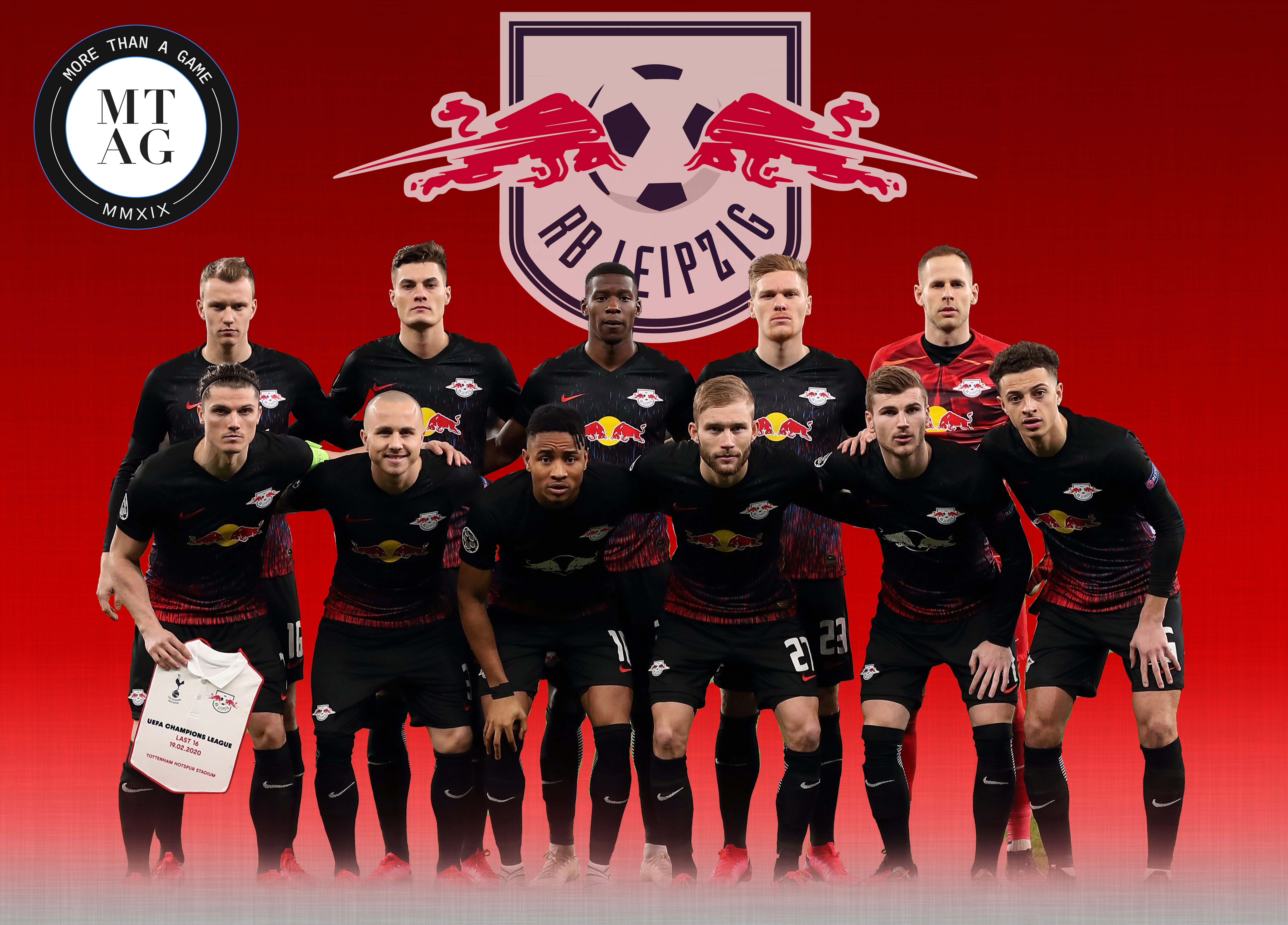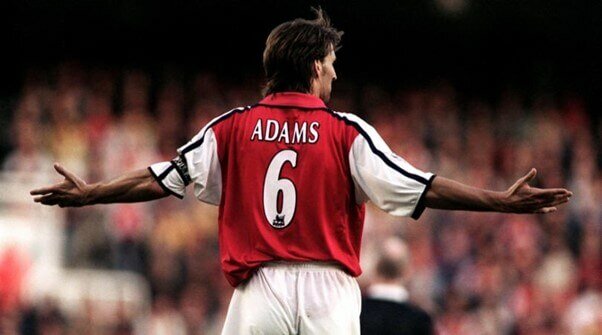WHY I LOVE RB LEIPZIG

Silence. That is the sound a Manchester United player would hear at Old Trafford. If they were lucky, they would have been able to hear a couple of fans snoring. In all of my years of supporting my club, I have never experienced a year darker than Louis van Gaal’s 2nd season at the club in 2015/16. While there were bright spots, like Anthony Martial and his brilliant debut season, after arriving as a relative unknown to the league followed by the fortuitous yet brilliant emergence of Marcus Rashford, which culminated into an FA Cup triumph, it was a soul-sucking season.
However, these were probably the saving graces in a season where the ‘Theatre of Dreams’ became a place similar to the basement where Leonardo di Caprio meets the chemist in the movie, ‘Inception’. To say that the football on offer was boring would be dull on my part. Rather than being lulled to sleep, I started looking for something new to follow.
What I got during this experience was something more. A feeling of new beginnings. A feeling of starting from scratch. This article explores the feeling of starting anew, like how I did, when I eventually began following RB Leipzig and especially the rise of their manager, Julian Nagelsmann.
Ever since my dad decided to take up the subscription to the channels that broadcasted the 2002 World Cup, I fell in love with the beautiful game. I was mesmerized by the skill and joy the Brazilians brought to the game, especially my favourite player of all time, O Fenômeno Ronaldo Nazário. My second great love was David Beckham, which drew my attention towards Manchester United. Once I started following United, I fell in love with the team, because it had the greatest manager of all time managing them – Sir Alexander Chapman Ferguson.
Following his career at United have to be undoubtedly the greatest years of my young life so far. When he retired, it was probably one of the saddest days in my life. Just knowing that he wouldn’t be there anymore with this team, prowling the touchline, barking instructions, celebrating the goals made it even sadder.
While we were not related, we still call him Ferguson thatha (which means grandfather in Tamil) in my house because he was an indelible part of life for a long time. He is that lovable old man whom you wish you could just meet once and talk to about life.
Never did I expect this team would lose its way like it has, post-Fergie. The board and management had moved away from its core principles which had brought them success, instead choosing to line the pockets of the owners, who use the club as an ATM. Feeling dissatisfied with the state of the club that had defined the course of my life, I contemplated about what it would mean following the progress of another club. I began searching for that feeling which led me to support United in the first place. A feeling of belonging.
At the same time, history was being made in Germany. Julian Nagelsmann was appointed as the first team coach of TSG Hoffenheim, making him the youngest manager in Bundesliga history at age 28. This certainly piqued my interest, especially after he proceeded to lead Hoffenheim away from relegation, all the while playing a unique and attractive brand of football. His personality & charisma drew me further towards him, the same way I was drawn towards Sir Alex. Nagelsmann’s famous mantra,” 30% of coaching is tactics, 70% social competence “is a gamechanger in the way it describes how the Gen Z manager should operate.
The body of work Julian has accomplished at Hoffenheim is remarkable to say the least, especially working on a shoestring budget as he did during his time. Consistently overachieving and maximizing the talent at his disposal, he kept his team challenging for the European spots, while revolutionizing management in new ways by embracing technology. At Hoffenheim, he installed a massive screen on the training pitch so they could do real-time analysis; he brought in drones; he also used something called the ‘Footbonaut’, a machine geared toward improving a player’s reaction time and spatial awareness. But his coaching philosophy and approach comes down to two fundamental pillars: efficiency on the field and a personable approach off it.

While being influenced by the positional play of Pep Guardiola, he displays an amount of pragmatism too, when he wants to get the job done. Being there are many comparisons to Jose Mourinho with regards to his charismatic persona, I feel he represents for me the modern-day Sir Alex Ferguson- tall statement to make and you can call me crazy. But one thing that cannot be denied is the inescapable aura he transmits.
The same year, a team funded by Red Bull owner Dietrich Mateschitz made its debut in the Bundesliga. RB Leipzig shocked everyone when they embarked upon a 13-match unbeaten run to start the season, a record in the Bundesliga. They played some brilliant, swashbuckling counter-attacking football, employing an aggressive offside trap and ultra-pressing in a narrow 4-4-2 shape. This was especially beautiful to watch, closely resembling the swagger of the United teams in their heyday. This team was built upon a couple of core principles that really resonated with how I personally envision a team to be built.
The first being the platform the club provides to young players. You might then ask me what is the difference here between RB Leipzig and clubs like Ajax, Dortmund and Southampton? The key difference here is their focused scouting to fulfill a style of play they want to implement. The way in which they sign players is also especially unique, using their pyramid network, similar to the City Football Group. The second being, RB aim to develop young players as soon as possible through intensive work during training sessions in order to make them grow and improve their endurance. There’s an unforeseen bravery to their approach that has ultimately seen raw prospects catapult into the game’s most sought-after superstars.
This footballing network was developed using the knowledge and expertise of a man who brought in the likes of Emil Forsberg, Naby Keita and Timo Werner, all to the same club while bringing that same club from the lower leagues of German football to the UEFA Champions League in no time at all. His name is Ralf Rangnick, the brains behind the operation. His academic demeanor earned him the nickname ‘The Professor’ from the German media when as the little-known boss of Bundesliga 2 side Ulm in 1998, he appeared on national TV to explain what even the most sheltered football fan would now recognize as ‘pressing’. The gamble, carefully calculated in that acutely sharp Rangnick mind has of course paid off handsomely in Leipzig, where his policy of the three K’s- Kapital, Konzept and Kompetenz (money, concept and competence) have dovetailed dreamily.
“If those three things come together, then you can be successful. If you only have one or two of them, it’s more difficult.”

Scouting Goals
There has been widespread criticism of the club from the media and fans alike, with regards to the ‘50+1’ rule in Germany. The other major accusation is calling it as a marketing club using its image and style of football to sell more Red Bull cans. Even though some of the criticisms are justified, in my opinion, they are being attacked for bringing something new to the table. It is easier to deride their progress by citing the millions invested into the club. But they have gone about their process in a wholly different way to the likes of clubs funded by oligarchs and barons. They have justified their rise by believing in the potential of youth and giving them the belief and platform to shine, while entertaining the fans by playing an excellent brand of football.
This is the reason why the RB fan scene has developed so quickly. People, who normally didn’t go to the stadium anymore, because their team wasn’t competitive as they played in lower divisions and because in Leipzig, there was a problem with fan violence have found in RB, their new team. Fans don’t put first the fact that the club is linked with Red Bull, but they focus on the chance to have a new competitive side in their city.

Finally, the supporters of clubs which are fighting for Europe or are trying to avoid relegation are afraid of RB’s results on the pitch. This is why I believe in this team, especially because they have Julian Nagelsmann managing them now. It is the perfect union of philosophies.
Thursday morning will be filled with conflicting emotions for me when Manchester United meet RB Leipzig at Old Trafford. It will be a meeting of David & Goliath in terms of historical legacy, akin to Apple & IBM. It is like choosing between an older brother and a younger brother. In all honesty, a draw wouldn’t be a bad result for me. Being on this journey with Leipzig and the potential it has, the experience of hopefully winning trophies along the way, it gives fans like me the opportunity to write the history of the club and be a part of its legacy. I leave you with this beautiful dialogue from the movie Moneyball, where Brad Pitt as Billy Beane remarks.
“Listen, man. I’ve been in this game a long time. I’m not in it for a record, I’ll tell you that. I’m not in it for a ring. That’s when people get hurt. If we don’t win the last game of the series, they’ll dismiss us. I know these guys, I know the way they think and they will erase us. And everything we’ve done here, none of it will matter. Any other team wins the World Series, good for them. They’re drinking champagne, they’ll get a ring. But if we win, on our budget with this team, we’ll change the game. And that’s what I want, I want it to mean something.”
Here’s to hoping they truly do.
Read More
IS AMERICA FOOTBALL’S NEXT SUPERPOWER?
HARSHAVARDHAN GHADGE \
FEATURES
A BARÇA FAN’S HONEST FAREWELL TO LUIS SUÁREZ
ADITYA GOKHALE
FEATURES
THE ENIGMA OF TONY ADAMS: A FIRST AMONG EQUALS
CHENGAPPA CARIAPA
THROWBACKS



